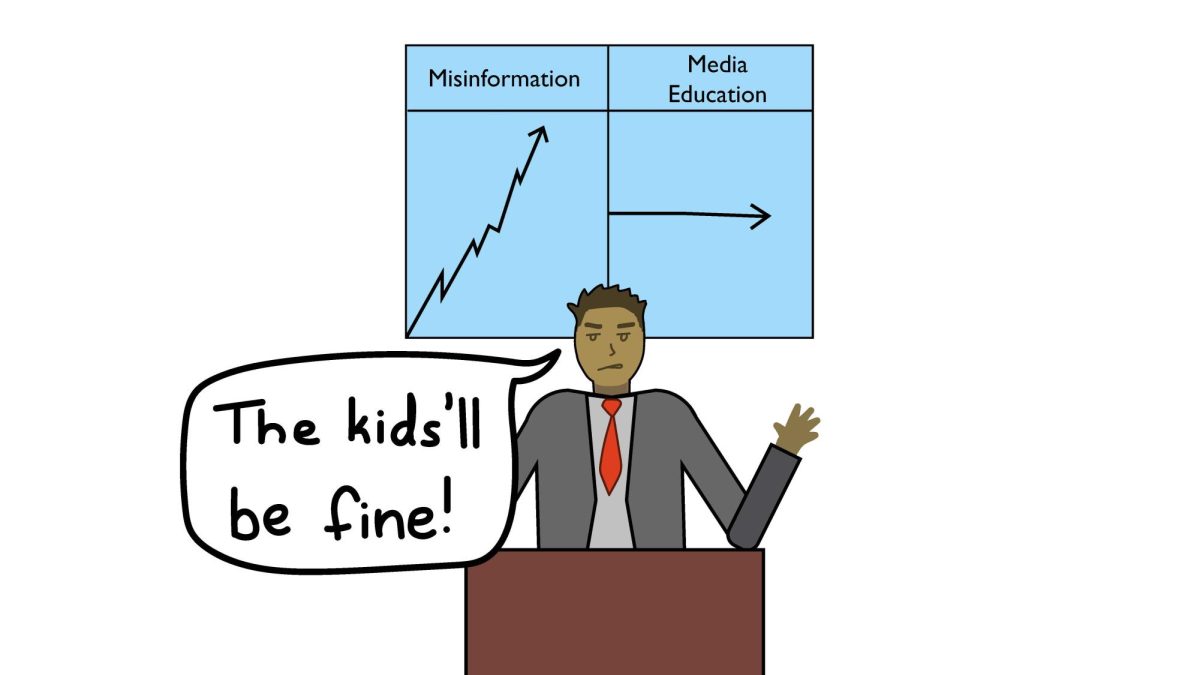Yes, summer programs are time well spent
Preparing for college and life after high school is highly important. High school students are not learning the independent living skills they need in school environments, so supplementing their studies with summer programs is becoming increasingly necessary. Summer programs allow students to develop personally and academically in a new environment, and their benefits ultimately outweigh their costs. More high school students should be enrolling in summer programs to increase their chances of success after high school, whether those programs focus on academics, career skills or personal interests.
One of the most commonly touted benefits of pre-collegiate summer programs is that they improve a student’s chance of admission to colleges. Attendance at academic summer programs — career-focused courses and summer classes — can stand out to college admissions officers at the college the student attends for the program. Taking summer courses at accredited universities proves that students are capable of adapting to college life and handling college workloads. According to the Princeton Review, participation also demonstrates initiative on a college application. While some argue summer programs no longer assist college admissions because so many students attend them, participation in a summer program can still help a student’s application pop.
Attending summer programs offered or sponsored by specific universities shows demonstrated interest in that school when students apply. According to CollegeWise, surveys show that 25% of colleges see demonstrated interest as a moderate to important factor in admissions. Demonstrated interest in schools — attending their events or programs; visiting their campuses; and contacting professors, students and admissions counselors — stands out to admissions officers, who are looking to accept people who are likely to commit to their school. Someone who has experienced a specific college campus is more likely to attend than someone who hasn’t. Although the increased chance of admission is definitely a plus, it is not the most important benefit. Summer programs introduce students to new people and places they may not be able to find at their high school.
Summer programs located on college campuses or abroad — usually language-intensive courses — expose high schoolers to new environments and cultures and introduce them to people with similar interests who come from different backgrounds. This is great preparation for the future when they will be exposed to new things. It’s an opportunity to reinvent themselves and experiment in a temporary, low-consequence environment.
While summer programs can be expensive — with some costing thousands of dollars — students can receive financial assistance through scholarships, grants or fee waivers. The Fir Acres Creative Writing summer program I attended on the Lewis & Clark College campus costs $3,500, but partial, need-based scholarships are offered. If cost is a concern for students, it is not difficult to find programs that offer financial assistance through websites like fastweb.com and organizations like QuestBridge and the Council On International Educational Exchange. All of these resources can be found by quickly typing “summer programs for high school students with scholarships” into a search engine. In addition, the cost of summer programs is often worth it for the life experience students gain from them. The potential for self-exploration at a summer program is one of the best benefits for high school students.
Being away from home encourages high schoolers to mature and explore their identities. I learned so much about myself at Fir Acres. The new, open environment gave me the opportunity to grow into myself away from the expectations of people who’ve known me my whole life. It was an invaluable experience. If I hadn’t gone, I wouldn’t feel so prepared for college — for going far from home to learn. Fir Acres allowed me to be my own person in a way I’m unable to be at home. Summer programs allow high schoolers to find themselves and let them explore their interests, both of which prepare them for what they’ll do after high school.
No, there are better ways to spend your summer
Traditionally, students are expected to take up summer activities and programs to develop their knowledge and be able to compete in the admissions of top colleges. But are these opportunities really what they seem? Is it worth it to dedicate your summer to these programs? These programs can have weighty costs for an exaggerated educational experience.
Of the top 50 schools in the nation, the vast majority offer pre-collegiate studies, which allow students to take college classes on campus over the summer. These programs can be ridiculously expensive, priced at thousands of dollars. Brown University, for example, charges $2,776 for a weeklong session and $6,976 for a four-week session. Often, highly-ranked universities similar to Brown take advantage of their brand name to charge exorbitant amounts of money for an educational experience that may not be as beneficial as they make it out to be, proclaiming that they provide a priceless “once-in a-lifetime” opportunity to be immersed in the college experience.
Students who want to attend these programs are expected to pay the full amount without any federal financial aid. This is because pre-college programs aren’t qualified to receive federal financial aid. On Notre Dame’s website, it states that application fee waivers are “granted rarely and only in extreme circumstances” and that the college has “limited need-based partial to full-tuition scholarships available to students who apply for the Summer Scholars program.”
Not only are these programs expensive, they can also be pointless. According to Bev Taylor, the founder of a college consulting firm in New York, Ivy Coach, these programs are insignificant to admissions officers on college applications because they do not reflect a student’s academic ability as well as other activities, such as exploring your interests, helping your community, finding a job or taking free courses at a local community college, which offer a similar educational experience without the cost.
Universities clarify that attending their programs will not give you guaranteed acceptance or even preference during the admissions process. Taylor also stated that attending these programs may even harm your application because admissions officers don’t like to see that a student has spent a summer at a program that cost thousands of dollars instead of doing something more imaginative or meaningful.
In many cases, colleges only provide these programs to generate millions of dollars from those who are desperately trying to get an upper hand in admissions. These colleges often exaggerate the benefits of their programs and the necessity to attend their program to stand out in applications. Young students, intimidated by the low acceptance rates of their dream schools, feel pressured to attend these misleading programs.
Summer programs are also significantly less selective when compared to undergraduate admissions, indicating that colleges just want to profit off as many students as they can. Colleges running summer programs may be more interested in a student’s ability to cover the heavy cost rather than their academic ability.
These issues are exacerbated by the general atmosphere surrounding college admissions, where competition is high and rising, causing families to feel pressured to do whatever it takes to stand out. In fact, to accommodate family demand for these programs, some schools — like UCLA and Georgetown University — are working on starting “junior discovery” programs for middle school students.
While these high school summer programs provide a unique opportunity to explore new academic environments, their benefits are exaggerated and not nearly worth the hefty cost. Ultimately, big colleges use these precollegiate programs to deceive motivated students with the tantalizingly false hope of gaining an edge in their college applications.


















